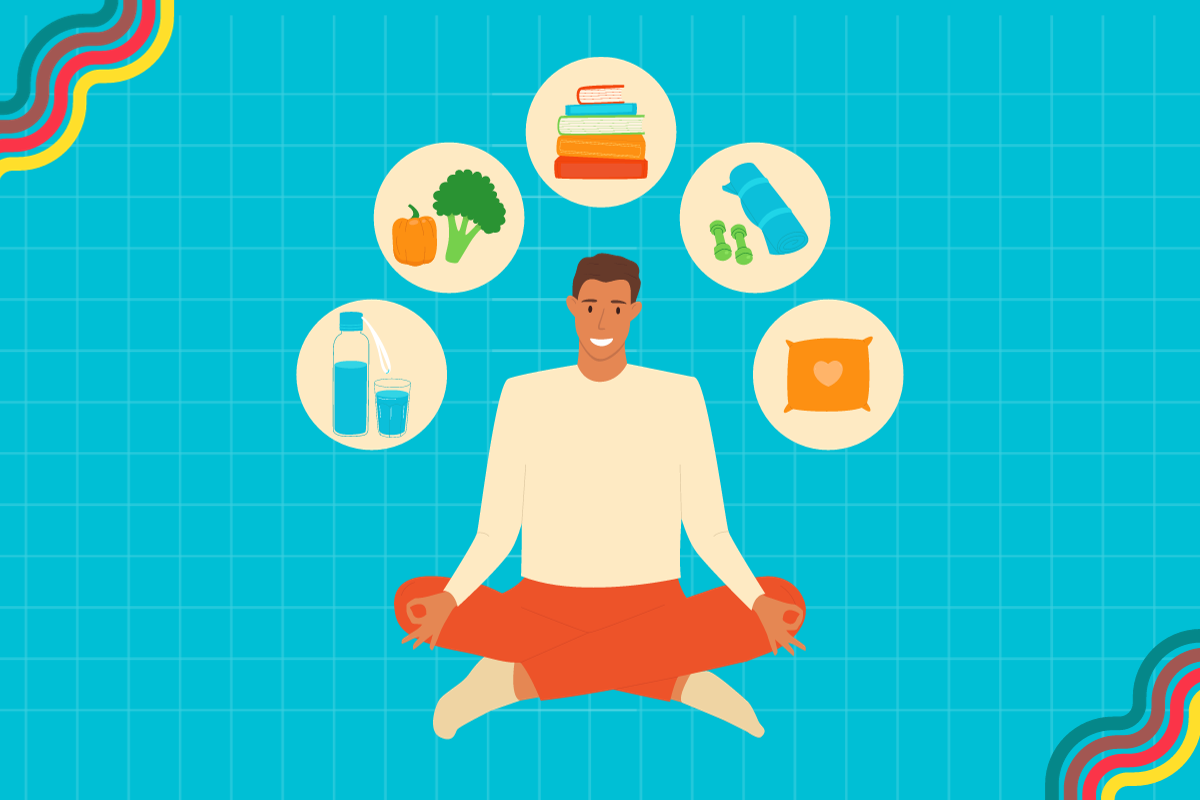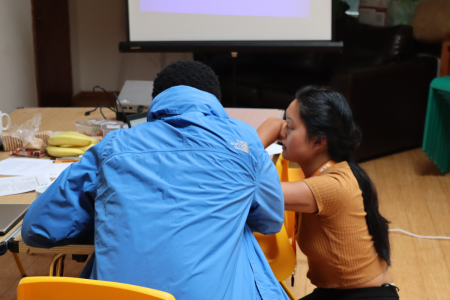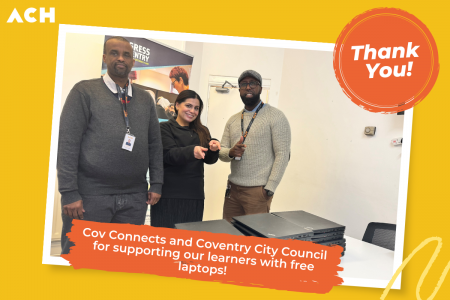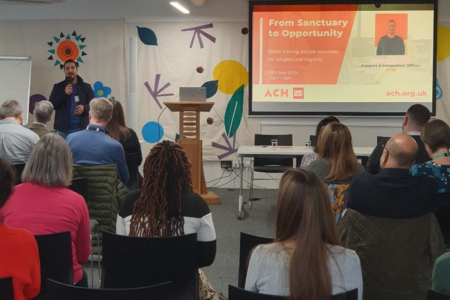
Better Health and Wellbeing for Everyone
Health and wellbeing are important factors in everyone’s ability to live a full life, but it remains a significant barrier to the integration of citizens-in-waiting.
*Key findings from our Change Makers 2023 Report.
All the participants in this study were extremely grateful for the National Health Service and praised the doctors and nurses who have helped them in times of need.
However, due to structural instability, long waiting lists, and cultural miscommunication, poor service provision (particularly in the field of mental health) still inhibits their ability to integrate successfully. In this article, we consider the barriers and enablers of good health and wellbeing, as reported by our participants.
Did you know…
- “There is no evidence that refugees and asylum seekers use a disproportionate share of NHS resources, and migrants in the UK and elsewhere in Europe tend to use fewer services than native populations.” (British Medical Association, 2022)
- “The Medecins du Monde Observatory Report, including 43,286 individuals from across Europe found that over half of those who reported “fear of arrest” as an obstacle to seeking healthcare, were in the UK” (Weller & Aldridge, 2019)
- “Most asylum seekers are entitled to emergency health care and with help from local voluntary agencies, can successfully appeal to have the bills removed. However, for asylum seekers who have been refused status, then costs can be incurred for emergency treatments and for maternity care. Families can be sent bills between £3-£5,000 and are unable to pay for these costs.” (Bristol City Council 2017: 30)
Trauma
“I feel that some people think we are here because we are weak, because we are fragile. But we are just looking for a chance.” -Fernando
“People who are refugees can find themselves quite quickly rising to a floating world either beyond or above politics, and beyond or above history - a world in which they are simply "victims." It is this floating world without the gravities of history and politics that can ultimately become a deeply dehumanising environment for refugees, even as it shelters.” -Liisa H. Malkki (1995: 518)
Katie Hope of the Trauma Foundation South West points out that people seeking asylum who engage with therapy are more likely to be granted permanent status. Unfortunately, access to therapy is extremely difficult due to long, or even lack of, waiting lists. As such, there has been an increasing call in the support sector for a trauma-informed approach when serving citizens-in-waiting. While this is a necessary and welcome development, caution must be taken to not assume trauma or essentialise citizens-in-waiting as victims.
Medical anthropologists Fassin & D’Halluin (2005) explain that the narrative surrounding this demographic has, in recent years, shifted from a political to a medicalised gaze. This causes the social currency of citizens-in-waiting to rest more with physical and psychological injuries associated with trauma than their own testimonies and narratives (ibid). There is, of course, value in spotlighting the extra-ordinary struggles of citizens-in-waiting in the media to elevate the voices of those most marginalised to the eyes of the world stage (Marlowe 2010: 13), but this often risks a voyeuristic fascination with trauma, which undermines the good intentions of service providers.
Moreover, a focus on trauma can unwittingly pursue a focus on the individual while conveniently ignoring what institutions, particularly the healthcare sector, can do to better accommodate people from diverse backgrounds.
As such, it is important to remember that citizens-in-waiting are not vulnerable per se but rather they are made vulnerable and marginalised by structural inequality. Our focus, therefore, is not on how to tip-toe around traumatised people, but on how institutions and organisations can work to enable meaningful wellbeing without perpetuating a victimising gaze.
Barriers
- Poor wellbeing among citizens-in-waiting is often determined by poor quality of life and lack of opportunities. Factors such as inadequate housing, unemployment, social isolation and loneliness all contribute to poor health outcomes.
- Support workers’ jobs get harder as government funding for vital services is increasingly cut, rendering many of the services which would usually be signposted (such as dentistry and mental health) dysfunctional or obsolete.
- In many cases, the only time services are available is in an emergency. This also makes integration much harder as healthcare provision is a key part of refugees’ engagement with the community.
- Waiting lists are long and patients who phone are kept on hold for hours – this causes both clients and support workers to waste time, when time is a precious asset for those on the verge of destitution.
- Due to waiting lists and times mental health support for citizens-in-waiting is almost non-existent, resulting in a high prescription of medicine. While this may be useful to some, many are not aware of what they’re taking.
- Many participants complained of not being taken seriously by healthcare professionals, only to be admitted to hospital when conditions become life-threatening.
Enablers
Friendship: Loneliness and social isolation was reported among many participants, but among those with good social networks and community participation, wellbeing was reported to be good. Social initiatives by organisations such as Bridges for Communities and Bristol Hospitality Network were praised consistently. For LGBT+ citizens-in-waiting, Pride Without Borders provides fortnightly meet-ups to facilitate new friendships and support.
Opportunity: Satisfaction with health and wellbeing was reported among people with jobs. Many citizens-in-waiting have turned their craft and culinary hobbies into small businesses which was reported as helping them to feel at peace.
Awareness of rights: Rights must be communicated to citizens-in-waiting as many face poor health as a result of not understanding what they’re entitled to. From illnesses caused by poor living conditions to requesting a taxi from the hospital, understanding rights and complaints procedures can equip citizens-in-waiting with better health prospects.
Access to therapy: The elephant in every room was that therapy is incredibly difficult to access. With better accessibility to therapy or counselling, citizens-in-waiting can better achieve their goals.
Interpreters and practitioners from countries of origin: Interpreters are vital in assisting newly arrived citizens-in-waiting to achieve good health and wellbeing. Additionally, some who were able to access therapy found a cheaper alternative with less waiting lists than the NHS through practitioners from their own country, which proved to be highly valuable.
Recommendations for Action
- Trauma informed training - For all frontline staff to take a training course with the Trauma Foundation South West, who provide expertise from 20 years experience of working with refugees and asylum seekers. Subsidised for charities and nonprofits.
- Representatives from wellbeing and trauma support organisations as a permanent part of the hotel visitation package.
- Community therapists and counsellors from countries of origin who can speak the native languages of people with trauma. If more practitioners can be identified, this would cut waiting lists and provide bespoke, culturally relative treatment to those in need.
- Access to NHS dentistry in Bristol – Waiting lists have been closed since 2020 making it impossible to see a dentist in Bristol. This was a complaint among many of our participants.
- Art-based workshops – Our visual art workshop was a resounding success and participants were grateful for the chance to express themselves creatively. They noted that this would be a rewarding experience on a regular basis to improve wellbeing for themselves and their children. Organisations such as Art Refuge and Bristol Refugee Festival are already involved in this work and additional signposting to these opportunities would be a welcome addition to support workers’ repertoire of advice.


